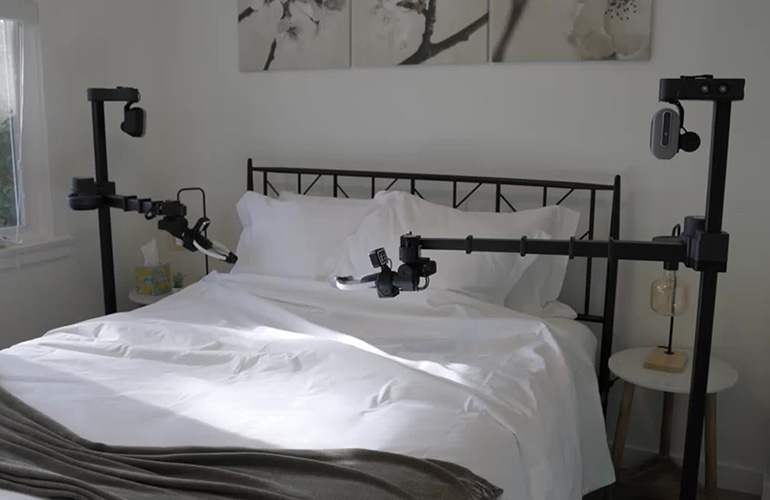|
Listen to this article |

The University of Illinois used the lightweight Stretch mobile manipulator in its study. | Source: Hello Robot
The Mather Institute recently recognized a study on how to build better assistive-care robots with a Bronze Award in the 2024 Innovative Research on Aging Awards. Led by a researcher with the University of Illinois Urbana-Champaign, the study investigated how to customize assistive robots to better meet the needs of individuals with mobility disabilities.
Samuel A. Olatunji, who led the research, and his team designed an immersive participatory process. During the over two-year-long study, Henry, an older adult with significant mobile disabilities, and his care partner worked with an occupational therapist and an engineer. During that time, the team aimed to improve the design of an assistive robot called Stretch from Hello Robot Inc.
“This Innovative Research on Aging Award honors the University of Illinois Urbana-Champaign and Dr. Samuel A. Olatunji for investigating ways to improve assistive robots, which may eventually improve the quality of life for a wider range of older adults across different abilities,” said Cate O’Brien, Ph.D., senior vice president of the Mather Institute.
“These awards recognize applied research with practical takeaways for the senior living industry” she said. “We aim for these findings to inspire innovations within senior living organizations around the country and the world.”
Founded in 1941, Mather Institute is a non-denominational, not-for-profit organization focused on ways to age well. The Evanston, Ill.-based institute serves as a resource for research and information about wellness, trends in senior living, and service innovations.
University of Illinois study provides direction on improving assistive robots
After deploying the assistive robot with Henry, the researchers gathered quantitative measures and conducted semi-structured interviews. Later, the team analyzed the information it gathered to generate design recommendations.
The researchers said the project’s person-centered, goal-oriented approach was beneficial in narrowing down tasks and identifying goals around self-care, productivity, and leisure. Henry’s performance and satisfaction while performing daily activities improved by 68% and 72%, respectively, when using the robot.
“I am grateful to the University of Illinois Urbana-Champaign for providing a supportive environment for conducting applied research,” Olatunji said. “The interdisciplinary research approach facilitated through the College of Applied Health Sciences is evident in the research outcomes seen across campus, having a positive impact on our community, and meeting the needs of a diverse population.”
During the research, Henry and the occupational therapist designed tools for Stretch to carry out some tasks, such as helping Henry feed himself, playing cards, and providing assistance during chores. The researchers also identified facilitators and barriers to using Stretch in a home environment of an individual with a disability.
The robot used in the study, Stretch, was developed by Martinez, Calif.-based Hello Robot. The company released the latest version of the mobile manipulator, Stretch 3, in February.
Hello Robot said it has improved the manufacturability and the usability of the robot with its latest release.

